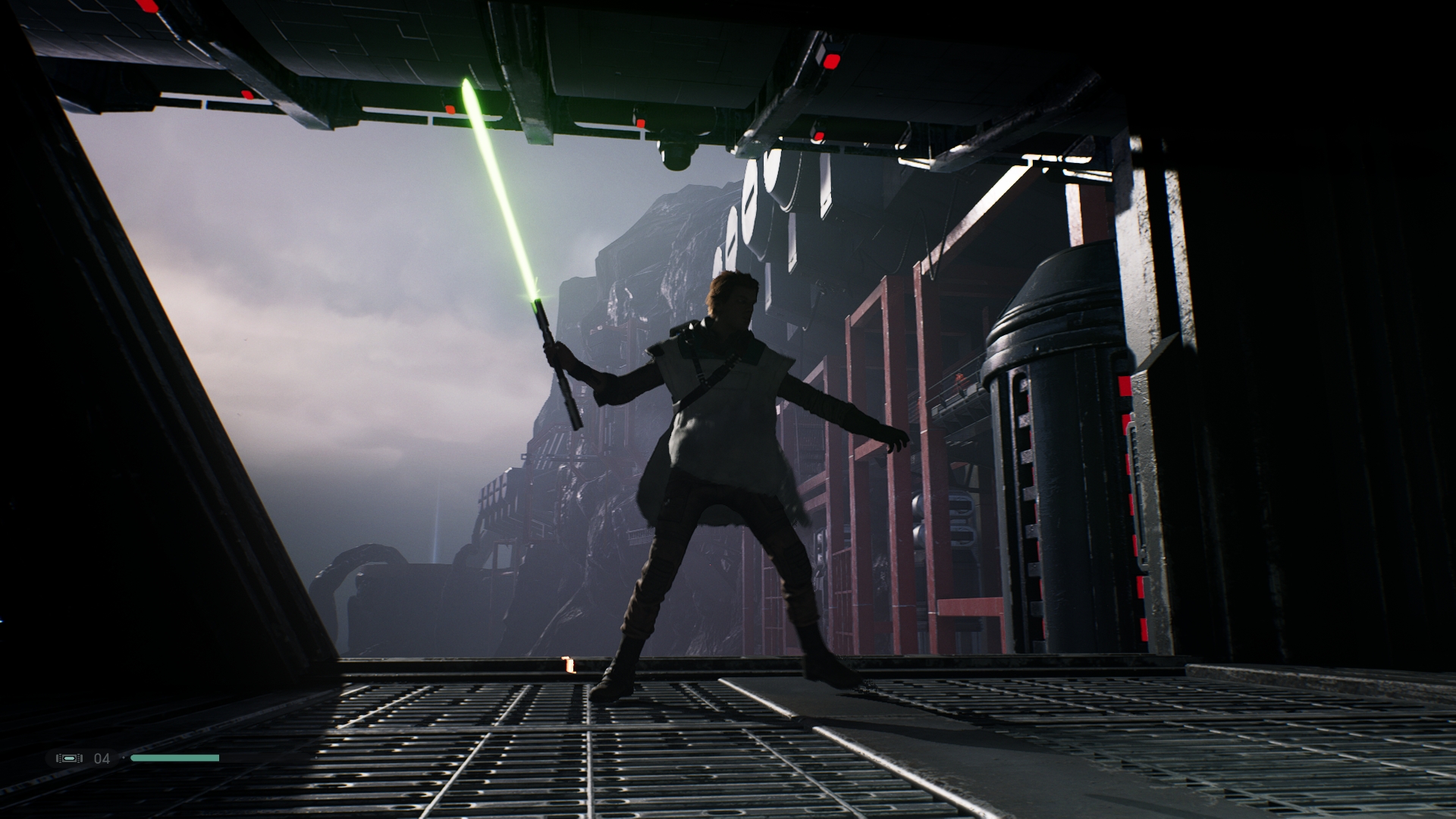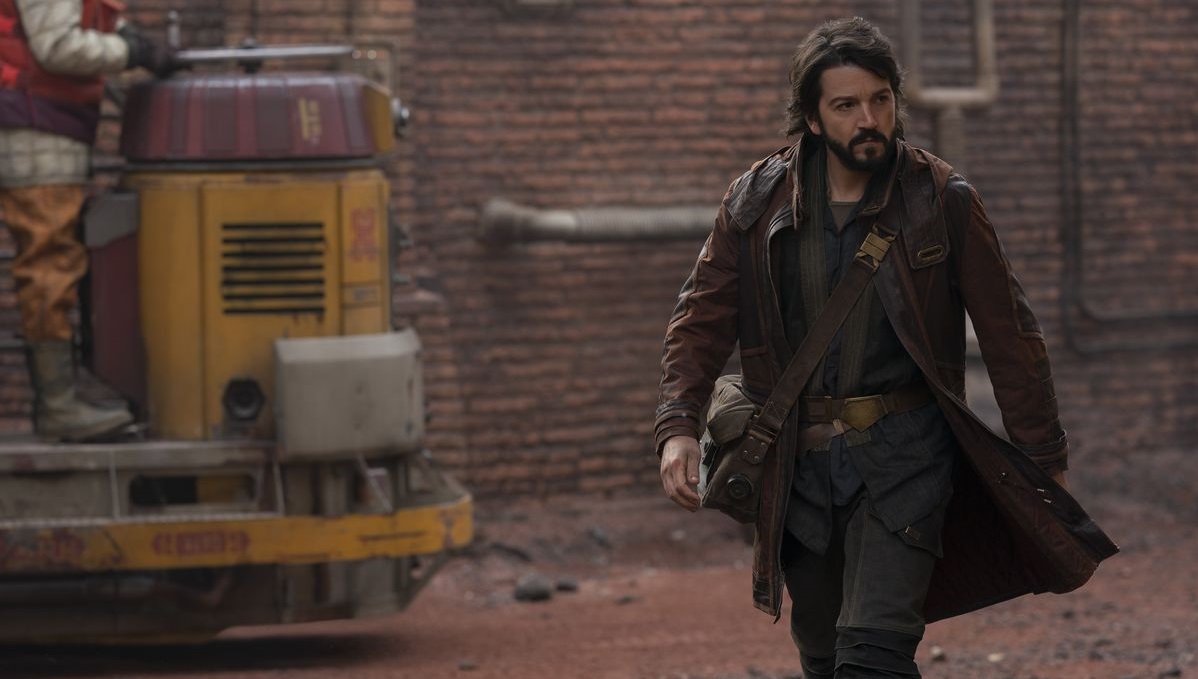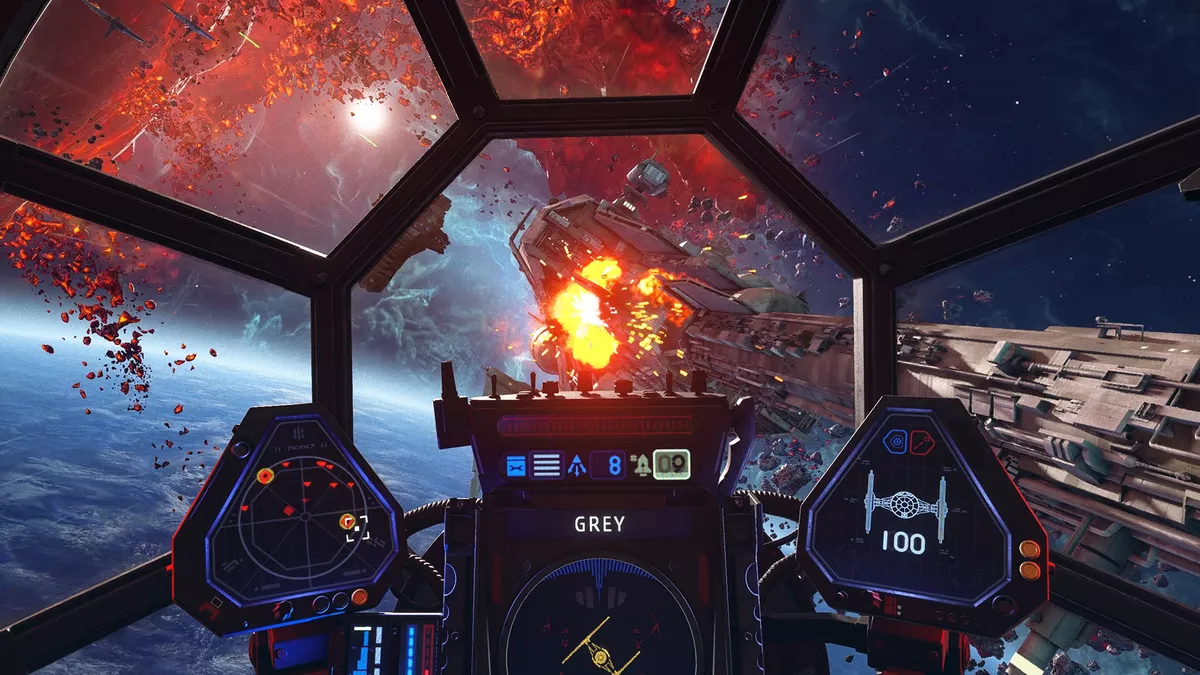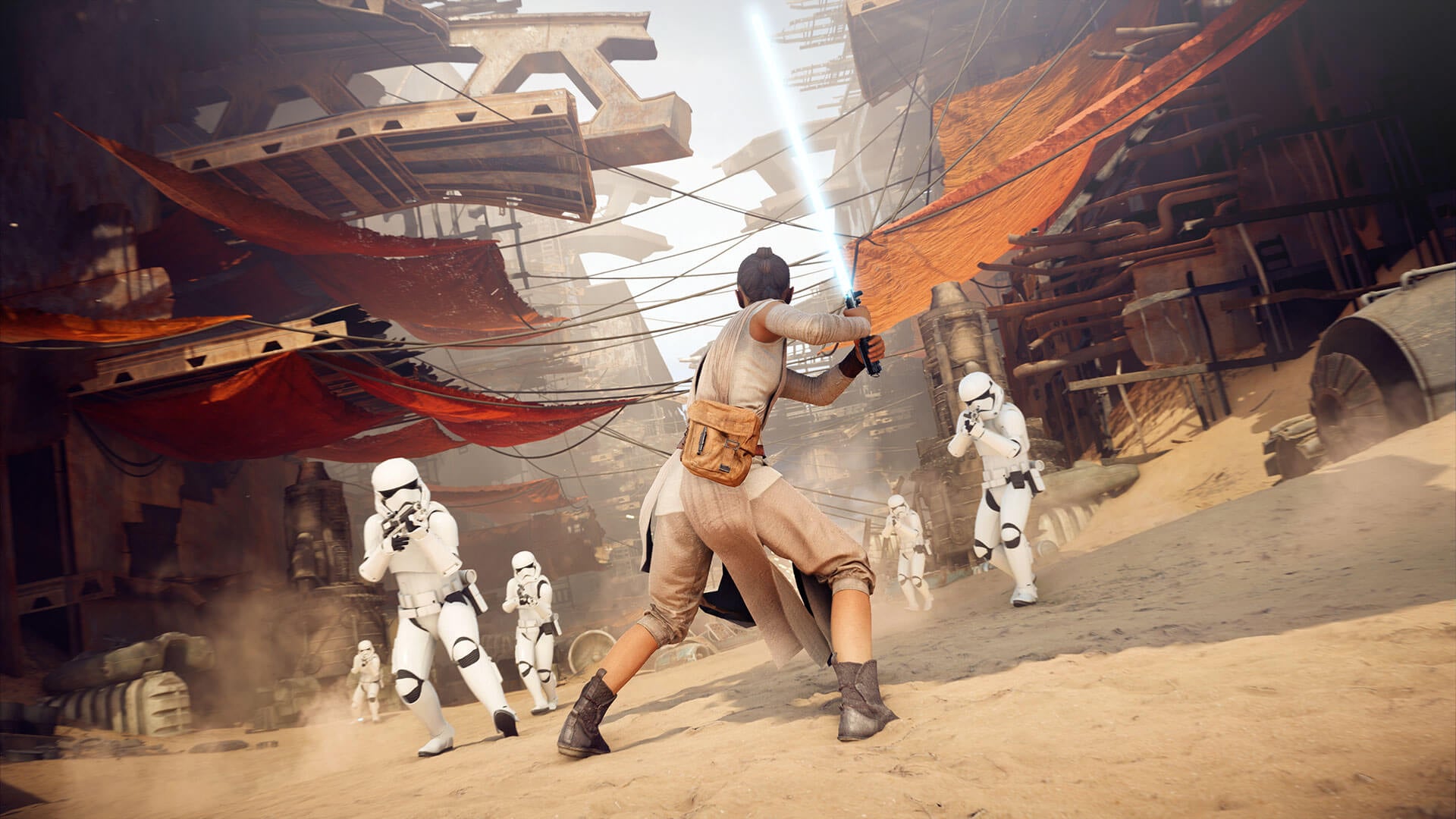Andor could teach Star Wars games a thing or two
Games could benefit from the best Star Wars TV show's grounded approach and lack of fan service.

After the completely unnecessary Book of Boba Fett and Obi-Wan Kenobi, I was ready to call it quits on the live action Star Wars TV offerings, and I couldn't have predicted that a character who I'd completely forgotten about could bring me back into the fold. But here we are. Andor is the best thing to happen to Star Wars in ages, and I wish what made it special could be applied to Star Wars games.
Plenty of games from a galaxy far, far away have stolen my heart, particularly KotOR, Dark Forces and Rogue Squadron. I've even found a lot to like in the newer stuff. I still play Star Wars: The Old Republic, and while it was entirely absent likeable characters, I still mostly enjoyed Fallen Order. But after 30 years of devouring Star Wars media, I'm a bit bored of it.

Jedi, Sith, stormtroopers—all the iconic stuff—are all so familiar that there's very little in the way of new story potential. Overfamiliarity has killed my interest. Andor sidesteps this issue by, well, ignoring all the stuff you'd expect it to show off. Instead of faceless stormtroopers, it's got flawed corporate security goons and conflicted naval officers. It's the height of the Empire's power, but you'll be able to count how many TIE fighters you see on one hand.
This means that when you do see something familiar, it packs more of a punch. The few times Cassian Andor spots a TIE, they're special moments. I've seen a million of them blow up, and contributed to that number myself, but watching a single unaccompanied fighter flying over some hiding rebels filled me with dread and gave me a much deeper appreciation of how menacing they look and sound.
So Andor isn't desperate to escape the recognisable stuff; it just uses some restraint to make sure they have an impact. And there's still a wee bit of fan service, too, like getting to see a fella munching some cereal in blue milk.

Andor himself is also an unconventional Star Wars protagonist. The first time we meet him in both Rogue One and his own show, he's murdering people—not because he's trying to eradicate evil from the galaxy, and not because he's a badass bounty hunter, but because he's a morally conflicted survivor.
It's a side of Star Wars we rarely get to see, especially in this detail, and games feel like an even better space to explore this.
It's a side of Star Wars we rarely get to see, especially in this detail, and games feel like an even better space to explore this. Andor isn't your average bloke, but compared to characters like Boba Fett and Luke Skywalker, he's just an ordinary guy. Han Solo is the closest comparison I can think of when it comes to the major characters, but he's still very much an archetype—the charming rogue—while Andor is harder to pin down. And I'm desperate to play that kind of character. One with nuance and complexity.
Keep up to date with the most important stories and the best deals, as picked by the PC Gamer team.
Even when Andor reintroduces us to Mon Mothma, we get to see her in a new light. She's this massively important figure, but since she doesn't get to swing a lightsaber or shoot a hundred stormtroopers with a blaster, the movies push her off to the side, turning her into this unknowable entity who occasionally tells people what to do. In Andor, she's a savvy politician stuck in a shitty marriage with a kid who hates her, and at all times she has to wear this mask, pretending to be a loyal servant of the empire, all while trying to find opportunities to sneak off and fund the nascent rebellion.

I understand the desire to use the familiar as a hook for a game, but Andor shows us how that can be done while still offering something new. And games, with their more flexible scope and run-time, have even more room to play around with this. But they so rarely bother. We just get cardboard cutouts. Who is Fallen Order's Cal, aside from a ginger Luke? He's just a nice boy who's a bit sad about all the bad stuff going on and is adept in the Force. I spent over 30 hours with him and that's the most meaningful description I can muster.
Most games lack an identity or vision that goes beyond just being Star Wars, but there's a whole galaxy out there waiting to be mined. That's likely why I love KotOR 2 more than any other Star Wars adaptation. It's still ultimately focused on Jedi and Sith, but Obsidian was interested in digging deeper into what makes these magical monks tick. It's a treatise on the Force itself, exploring the actual philosophy behind the Jedi and Sith. And it's ambiguous, eschewing the juvenile morality of most Star Wars media. Sadly, it's an exception.

For Andor, the movies and expanded universe are tools to be deployed when they are needed, rather than the entire reason for its existence. It's a spy thriller that just so happens to share a universe with A New Hope, The Mandalorian and all the rest, rather than being a Star Wars show first.
When I see games trading in nostalgia and fan service, it reeks of a lack of confidence in their own stories. If they aren't good enough to stand on their own without legions of gormless stormtroopers and a kaleidoscope of lightsabers, then they probably aren't good enough period.

Fraser is the UK online editor and has actually met The Internet in person. With over a decade of experience, he's been around the block a few times, serving as a freelancer, news editor and prolific reviewer. Strategy games have been a 30-year-long obsession, from tiny RTSs to sprawling political sims, and he never turns down the chance to rave about Total War or Crusader Kings. He's also been known to set up shop in the latest MMO and likes to wind down with an endlessly deep, systemic RPG. These days, when he's not editing, he can usually be found writing features that are 1,000 words too long or talking about his dog.

